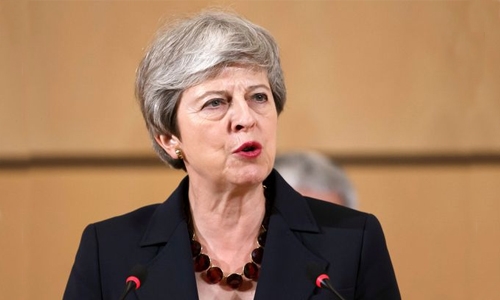Britain sets deadline for carbon neutrality by 2050
The British government yesterday presented draft legislation to reduce carbon emissions to net zero by 2050 in what it said would be a first for a major economy. The new target was broadly welcomed across the political spectrum but environmental groups said it would require radical action to decarbonise the entire economy.
The deadline is far more ambitious than Britain’s current policy of cutting emissions by 80 per cent over the same period and Finance Minister Philip Hammond has reportedly warned it could cost more than £1.0 trillion. The 2050 date will be introduced in existing climate change laws through a piece of legislation known as a statutory instrument that parliament is expected to approve. “As the first country to legislate for long-term climate targets, we can be truly proud of our record in tackling climate change,” Prime Minister Theresa May said.
In one of her final acts before she steps down next month, she said Britain “must lead the world to a cleaner, greener form of growth”. “Standing by is not an option,” she added. Britain’s top advisory body on climate change this year said the net zero target could be achieved within a budget of 1.0-2.0 per cent of gross domestic product by 2050. The deadline would put Britain on track to fully meet its commitments under The Paris Agreement, under which countries have pledged to keep the global average temperature rise to well below 2 degrees Celsius.
Other EU countries have also pencilled in various emission reduction deadlines, although none have been adopted into law. In France, the government introduced a bill in April setting a 2050 target date, while Norway is discussing 2030. The world’s net carbon emissions grew by an “unsustainable” rate of 2.0 percent last year, according to a closely-watched review by energy giant BP published on Tuesday. The review also found that global energy demand grew by 2.8 percent, with the United States recording the biggest increase of any country.
Related Posts

